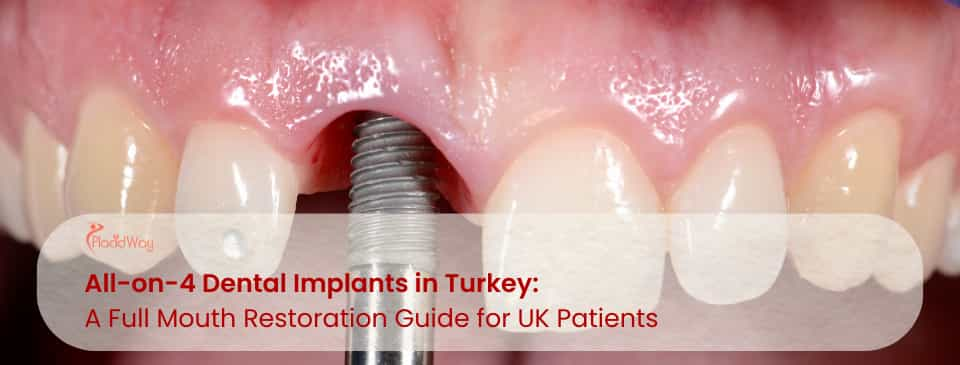
All-on-4 dental implants offer a revolutionary full-arch teeth replacement solution, providing a stable, permanent alternative to traditional dentures. Turkey has become a leading destination for UK patients seeking this life-changing procedure, combining advanced dental expertise with significantly lower costs.
Key Takeaways
-
All-on-4 dental implants in Turkey typically cost between £1,600 and £3,400 per arch, offering up to 70-80% savings compared to the UK, where prices range from £12,000 to £24,000 per arch.
-
The procedure involves strategically placing four dental implants in the jawbone to support a full bridge of prosthetic teeth, often allowing for a temporary bridge to be fitted on the same day.
-
Many clinics in Istanbul provide comprehensive all-inclusive packages covering the treatment, luxury accommodation, and VIP transfers, streamlining the process for international patients.
What Are All-on-4 Dental Implants?
All-on-4 dental implants are a highly efficient and effective solution for replacing a full arch of missing teeth (either upper or lower jaw) using just four strategically placed dental implants.
This innovative technique utilizes four titanium dental implants that are surgically placed into the jawbone. The two front implants are usually placed vertically, while the two back implants are angled (typically 30-45 degrees) to maximize contact with existing bone and often bypass the need for extensive bone grafting, even in cases of reduced bone density.
Why UK Patients Choose Turkey for All-on-4 Implants
The increasing popularity of Turkey for complex dental procedures like All-on-4 implants stems from several key advantages:
-
Exceptional Affordability: The most compelling reason is the dramatic difference in cost. Turkish clinics can offer All-on-4 procedures at a fraction of the price found in the UK and other Western countries. This is largely due to lower overheads, the cost of living, and a favorable exchange rate, allowing for high-quality treatment without a prohibitive price tag.
-
Highly Experienced Dental Surgeons: Turkey is home to a vast number of highly skilled dental implant specialists who perform a high volume of All-on-4 cases. Their extensive experience and specialized training translate into predictable and successful outcomes.
-
State-of-the-Art Facilities and Technology: Leading dental clinics in cities like Istanbul are equipped with cutting-edge technology, including 3D imaging (CBCT scans), digital planning software, and in-house laboratories. This ensures precise implant placement and the fabrication of high-quality custom prosthetics.
-
All-Inclusive Packages: To simplify the journey for international patients, many Turkish clinics offer comprehensive All-on-4 packages. These often include the surgical procedure, temporary and permanent prosthetic bridges, pre-operative diagnostics, post-operative care, medications, luxury hotel accommodation, and VIP airport and clinic transfers. This holistic approach reduces logistical stress for patients traveling from the UK.
-
Efficiency and Speed: The All-on-4 protocol is known for its efficiency. In many cases, patients can have their remaining unhealthy teeth extracted, implants placed, and a temporary set of teeth fitted on the same day (often referred to as "Teeth in a Day" or "Same-Day Smile"), allowing them to leave with a functional and aesthetically pleasing smile immediately.
The All-on-4 Dental Implant Procedure: Step-by-Step
The All-on-4 dental implant procedure is a meticulously planned surgical process that aims to restore a full arch of teeth efficiently, often providing immediate aesthetic and functional benefits.
Here’s a general outline of the steps involved in getting All-on-4 dental implants in Turkey:
-
Comprehensive Consultation and Planning:
-
Your journey begins with an in-depth consultation. This typically includes a thorough oral examination, digital X-rays, and advanced 3D imaging (CBCT scan) of your jawbone.
-
The dental surgeon will assess your bone density, identify vital anatomical structures (like nerves and sinuses), and determine the optimal placement for the four implants.
-
A personalized treatment plan is created, often using computer-guided implant surgery for maximum precision. Your desired aesthetic outcome and smile design will also be discussed.
-
-
Implant Placement Surgery:
-
On the day of surgery, local anesthesia is administered to ensure a pain-free procedure. Sedation options (such as conscious sedation or IV sedation) are often available for patient comfort.
-
If necessary, any remaining unhealthy teeth in the arch are extracted.
-
The surgeon then strategically places four titanium dental implants into the jawbone. The posterior implants are typically angled to take advantage of available bone and avoid sensitive areas like the sinus cavities in the upper jaw.
-
-
Temporary Prosthesis Placement (Same-Day Smile):
-
In many All-on-4 cases, if sufficient primary stability is achieved with the implants, a temporary, fixed prosthetic arch (denture) can be attached to the newly placed implants on the same day. This allows you to leave the clinic with a complete smile and restored chewing function. This is a significant advantage, eliminating the need for a period without teeth.
-
-
Healing and Osseointegration:
-
Over the next 3 to 6 months, the dental implants will undergo a process called osseointegration, where they fuse directly with your jawbone. This biological process creates a strong, stable foundation for your permanent teeth.
-
During this healing period, you will follow a soft diet to avoid putting excessive pressure on the healing implants.
-
-
Placement of Permanent Prosthesis:
-
Once osseointegration is complete and the implants are fully integrated, you will return to the clinic.
-
New impressions are taken to fabricate your custom-designed permanent prosthetic bridge. This bridge is typically made of high-quality materials such as zirconia or porcelain fused to metal, offering superior aesthetics, durability, and a natural feel.
-
The permanent bridge is then securely attached to the implants, completing your full mouth restoration.
-
Cost of All-on-4 Dental Implants: Turkey vs. UK
The significant cost for All-on-4 dental implants between Turkey and the UK is a primary driver for UK patients seeking treatment abroad, offering substantial savings without compromising quality.
The total cost can vary based on the clinic's reputation, the brand of implants used, the materials chosen for the final prosthetic bridge, and the inclusions in the treatment package.
|
Procedure (Per Arch) |
Turkey (USD / GBP approx.) |
UK (USD / GBP approx.) |
Potential Savings in Turkey |
|---|---|---|---|
|
All-on-4 Dental Implants |
$2,000 - $4,000 (£1,600 - £3,400) |
$15,000 - $25,000 (£12,000 - £24,000) |
70% - 80% |
Factors Influencing Cost:
-
Implant Brand: Premium implant brands (e.g., Nobel Biocare, Straumann) may slightly increase the cost but come with extensive research and long-term success rates.
-
Prosthetic Material: Zirconia bridges are often more aesthetic and durable than acrylic or porcelain-fused-to-metal, impacting the overall price.
-
Additional Procedures: While All-on-4 aims to minimize the need for bone grafting or sinus lifts, complex cases might still require these, adding to the cost.
-
Package Inclusions: Comprehensive packages that bundle accommodation, transfers, and extensive post-operative care will have a higher upfront price but offer greater convenience and value.
Recovery and Aftercare for All-on-4 Dental Implants
The recovery period after All-on-4 dental implant surgery is relatively quick for the initial healing phase, but full integration of the implants takes several months. Diligent aftercare is crucial for long-term success.
-
Immediate Post-Surgery (First 24-72 hours):
-
Swelling and Bruising: Expect some facial swelling and possibly bruising around the jaw and cheeks. This typically peaks at 2-3 days and then gradually subsides. Applying cold compresses can help.
-
Mild Discomfort: Pain is usually manageable with prescribed pain medication. Most patients report less discomfort than anticipated.
-
Bleeding: Minor oozing or bleeding is normal. Your clinic will provide instructions on how to manage this, often by biting gently on gauze.
-
Diet: A soft food diet is essential. Stick to liquids and very soft, non-chewy foods to avoid disturbing the healing implant sites. Avoid hot beverages, alcohol, and smoking.
-
Rest: Get plenty of rest and avoid strenuous physical activity for the first few days. Sleep with your head elevated to help reduce swelling.
-
-
First Week:
-
Continue with a soft diet. Gradually introduce slightly firmer soft foods as comfort allows.
-
Maintain excellent oral hygiene. Your clinic will provide a special antimicrobial mouthwash to use and specific instructions for gentle brushing, avoiding the surgical sites initially.
-
Avoid touching the surgical areas with your fingers or tongue.
-
Any stitches used are often dissolvable, or your clinic will advise on their removal during a follow-up.
-
-
Weeks 2-4:
-
Most visible swelling and bruising should have resolved.
-
You can gradually expand your diet to include softer chewable foods, but still avoid very hard or sticky items.
-
You can typically return to light work or daily routines after 1-2 days, though it's advised to avoid vigorous exercise for at least 2-3 weeks.
-
-
Months 3-6 (Osseointegration Period):
-
This is the crucial phase where the implants integrate with your jawbone. While you have a temporary bridge, it's vital to follow dietary restrictions (soft diet) to avoid excessive pressure on the healing implants.
-
Continue rigorous oral hygiene and attend all scheduled follow-up appointments.
-
-
Long-Term Care:
-
Once your permanent bridge is placed, treat it like natural teeth. Brush and floss daily (your dentist will show you special techniques for cleaning around the implants).
-
Maintain regular dental check-ups (typically every six months) and professional cleanings. This is vital for monitoring the health of your implants and surrounding tissues, preventing conditions like peri-implantitis.
-
Avoid using your teeth as tools (e.g., opening bottles) and consider a nightguard if you clench or grind your teeth.
-
Risks and Potential Complications of All-on-4 Dental Implants
While All-on-4 dental implants boast a high success rate, it's important to be aware of potential, albeit rare, risks and complications associated with any surgical procedure.
-
Implant Failure (Lack of Osseointegration):
-
Short Answer: The implant may not fuse with the jawbone, leading to looseness or pain.
-
Details: This is the most significant risk, although rare (around 5-10% of cases). Factors like poor bone quality, smoking, certain medical conditions (e.g., uncontrolled diabetes), or infection can hinder osseointegration. If an implant fails, it can often be removed and replaced after a new healing period.
-
-
Infection (Peri-implantitis):
-
Short Answer: Infection can develop around the implant site, similar to gum disease.
-
Details: Poor oral hygiene, smoking, or underlying health issues can lead to peri-implantitis, an inflammation that can cause bone loss around the implant and potentially lead to failure. Symptoms include redness, swelling, pain, or pus. Prompt treatment is crucial.
-
-
Nerve Damage:
-
Short Answer: Though very rare, nerve damage can occur, leading to temporary or (in extremely rare cases) permanent numbness, tingling, or pain.
-
Details: This risk is minimized through meticulous pre-surgical planning using 3D CBCT scans to precisely map nerve locations. Computer-guided surgery further enhances precision.
-
-
Sinus Issues:
-
Short Answer: A risk primarily with upper jaw implants, where implants might extend into the sinus cavity.
-
Details: This can lead to sinusitis (sinus inflammation). The angled placement of posterior implants in All-on-4 is designed to mitigate this, but a sinus lift might be performed beforehand in cases of insufficient bone height.
-
-
Prosthesis Problems:
-
Short Answer: The temporary or permanent bridge might chip, crack, or become loose.
-
Details: While durable, prosthetic teeth can be damaged by excessive force (e.g., biting very hard foods). Regular check-ups allow for early detection and repair.
-
-
Swelling, Bruising, and Pain:
-
Short Answer: Expected mild to moderate side effects immediately after surgery, which are temporary and manageable.
-
Details: These are normal responses to surgery and typically subside within a few days to a week. Pain medication and cold compresses are effective for management.
-
Candidacy for All-on-4 Dental Implants
All-on-4 dental implants are an excellent option for a wide range of patients, particularly those who have lost most or all of their teeth in an arch and are seeking a fixed, stable, and long-lasting solution.
You might be an ideal candidate for All-on-4 dental implants if you:
-
Are Missing Most or All Teeth: If you have multiple failing teeth, extensive tooth loss, or currently wear a full denture that is unstable or uncomfortable.
-
Have Sufficient Bone Density: While All-on-4 is designed to work even with moderate bone loss due to angled implant placement, a certain minimum bone volume is still required for successful osseointegration. Your dentist will assess this with CBCT scans.
-
Are in Good General Health: Patients should be free from uncontrolled systemic diseases (e.g., uncontrolled diabetes, severe heart conditions) that could impair healing. Smokers may be candidates but are typically advised to quit or significantly reduce smoking before and after surgery to improve success rates.
-
Are Committed to Oral Hygiene: A willingness to maintain excellent oral hygiene practices and attend regular dental check-ups is crucial for the long-term success of the implants.
-
Seek a Fixed Solution: You prefer a permanent, non-removable solution over traditional dentures.
-
Want a Quicker Restoration: You are looking for a faster full-arch restoration compared to conventional implant procedures that might require more implants and longer healing periods between stages.
Alternatives to All-on-4 Dental Implants
While All-on-4 is a highly effective solution, several other options are available for replacing missing teeth, catering to different needs, budgets, and oral health conditions.
-
Traditional Dental Implants: This involves placing one implant per missing tooth or a higher number of implants (e.g., All-on-6 or All-on-8) to support a full bridge. This option typically requires more bone volume and a longer treatment timeline due to staged healing for each implant.
-
Traditional Full Dentures: Removable dentures are the most affordable option for replacing a full arch of teeth. However, they can be unstable, cause discomfort, affect speech and eating, and do not prevent jawbone loss.
-
Implant-Supported Dentures (Overdentures): These are removable dentures that snap onto a smaller number of dental implants (usually 2-4 per arch) for improved stability and retention compared to traditional dentures. They are still removable for cleaning but offer better comfort and function.
-
Dental Bridges: Used for replacing one or a few missing teeth by anchoring a prosthetic tooth (or teeth) to adjacent natural teeth or existing implants. Not suitable for a full arch replacement without significant implant support.
-
Mini Dental Implants: Smaller in diameter than conventional implants, mini implants are often used to stabilize existing dentures, particularly in cases of limited bone. They are generally less invasive but offer less long-term stability than standard or All-on-4 implants.
Maintaining Your All-on-4 Smile Long-Term
Proper maintenance and regular dental care are paramount to ensuring the longevity and continued health of your All-on-4 dental implants and the prosthetic bridge.
-
Daily Oral Hygiene:
-
Brush your prosthetic bridge and gums twice daily using a soft-bristled toothbrush.
-
Use specialized cleaning tools recommended by your dentist, such as water flossers or interdental brushes, to clean thoroughly around and under the bridge, where food particles and plaque can accumulate.
-
Maintain excellent hygiene to prevent peri-implantitis, which can compromise the implants.
-
-
Regular Dental Check-ups:
-
Schedule routine check-ups with your dental implant specialist every six months. These visits are crucial for monitoring the health of your implants, the fit of your bridge, and the surrounding gum tissue.
-
Professional cleanings will remove any calculus buildup that regular brushing might miss.
-
-
Avoid Damaging Habits:
-
Refrain from biting or chewing on excessively hard foods (e.g., ice, hard candies, nuts, bones) as this can damage the prosthetic teeth.
-
Do not use your teeth to open packages or tear objects.
-
If you grind or clench your teeth (bruxism), wear a custom-fitted nightguard to protect your implants and bridge from excessive forces.
-
-
Dietary Awareness:
-
While you can enjoy a wide variety of foods with All-on-4 implants, maintaining a balanced diet supports overall oral health.
-
Avoid excessive consumption of sugary or acidic foods and drinks that can affect natural teeth or the gum tissue around implants.
-
-
Promptly Address Issues:
-
If you notice any unusual pain, swelling, redness, or a feeling of looseness in your implants or bridge, contact your dental clinic immediately. Early intervention can prevent minor issues from becoming major complications.
-
Frequently Asked Questions (FAQs)
How long does the All-on-4 procedure take in Turkey?
The surgical placement of the four implants for one arch typically takes 2-3 hours. If you receive a temporary bridge on the same day, the entire procedure can be completed within a single appointment, usually lasting a full day including preparation.
Will I be able to eat normally after All-on-4 implants?
Immediately after the procedure, you'll need to follow a soft diet for the first few months to allow the implants to integrate with the bone. Once the permanent bridge is placed (after osseointegration), you can generally eat all types of food, restoring nearly full chewing function.
Is the All-on-4 procedure painful?
The All-on-4 procedure is performed under local anesthesia, so you should not experience any pain during the surgery. Many clinics also offer sedation options for a more comfortable experience. Post-operative discomfort is typically mild and managed with prescribed pain medication, usually subsiding within a few days.
What is the success rate of All-on-4 dental implants?
All-on-4 dental implants have a high success rate, often reported between 95% and 98% over a 10-year period, particularly when performed by experienced surgeons and maintained with proper oral hygiene.
How long do I need to stay in Turkey for All-on-4 treatment?
For the initial implant placement and temporary bridge, a stay of approximately 3-5 days is usually recommended. You will then return for the permanent bridge after 3-6 months, which typically requires another 5-7 day visit.
Can I get All-on-4 if I have bone loss?
Yes, one of the significant advantages of the All-on-4 technique is its ability to utilize existing bone, often eliminating the need for extensive bone grafting even in cases of moderate bone loss. The angled placement of the posterior implants maximizes contact with denser bone.
What is the difference between All-on-4 and All-on-6 implants?
All-on-4 uses four implants to support a full arch, while All-on-6 uses six implants. All-on-6 may be recommended for patients who require additional support due to more severe bone loss or for enhanced stability, though it may be a slightly more expensive option.
Ready for a Complete Smile Restoration?
Don't let missing teeth affect your confidence and quality of life any longer. PlacidWay connects you with a network of the best dental clinics in Turkey specializing in All-on-4 dental implants, offering state-of-the-art full mouth restoration at prices that make sense for UK patients.

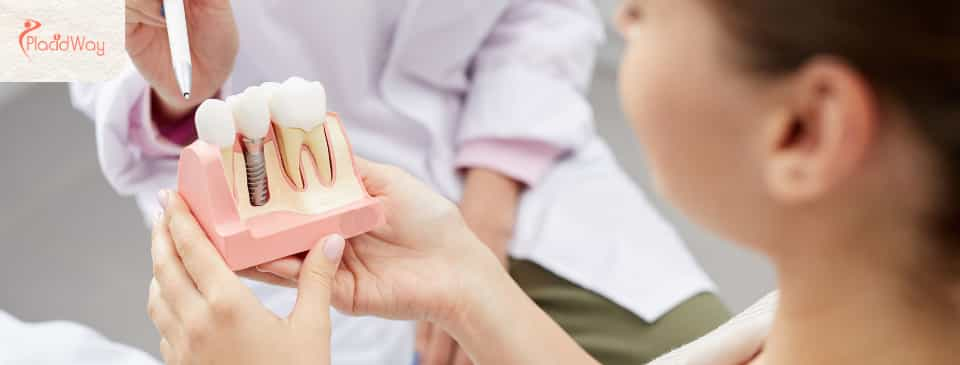
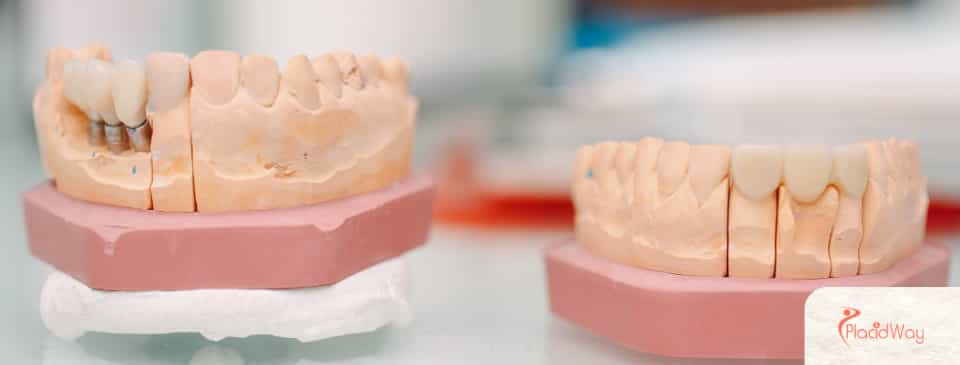

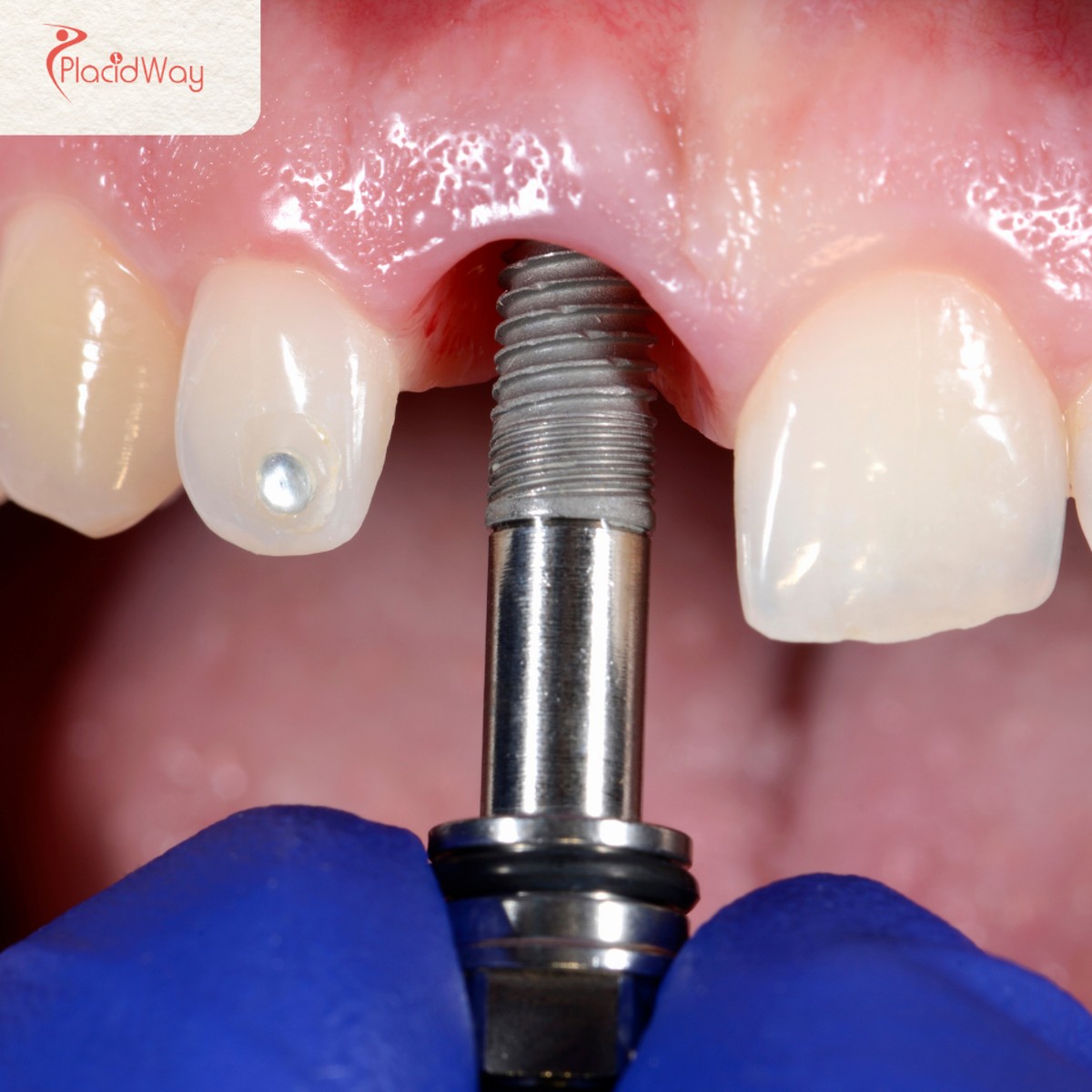
.jpeg)


.png)
.png)
.png)
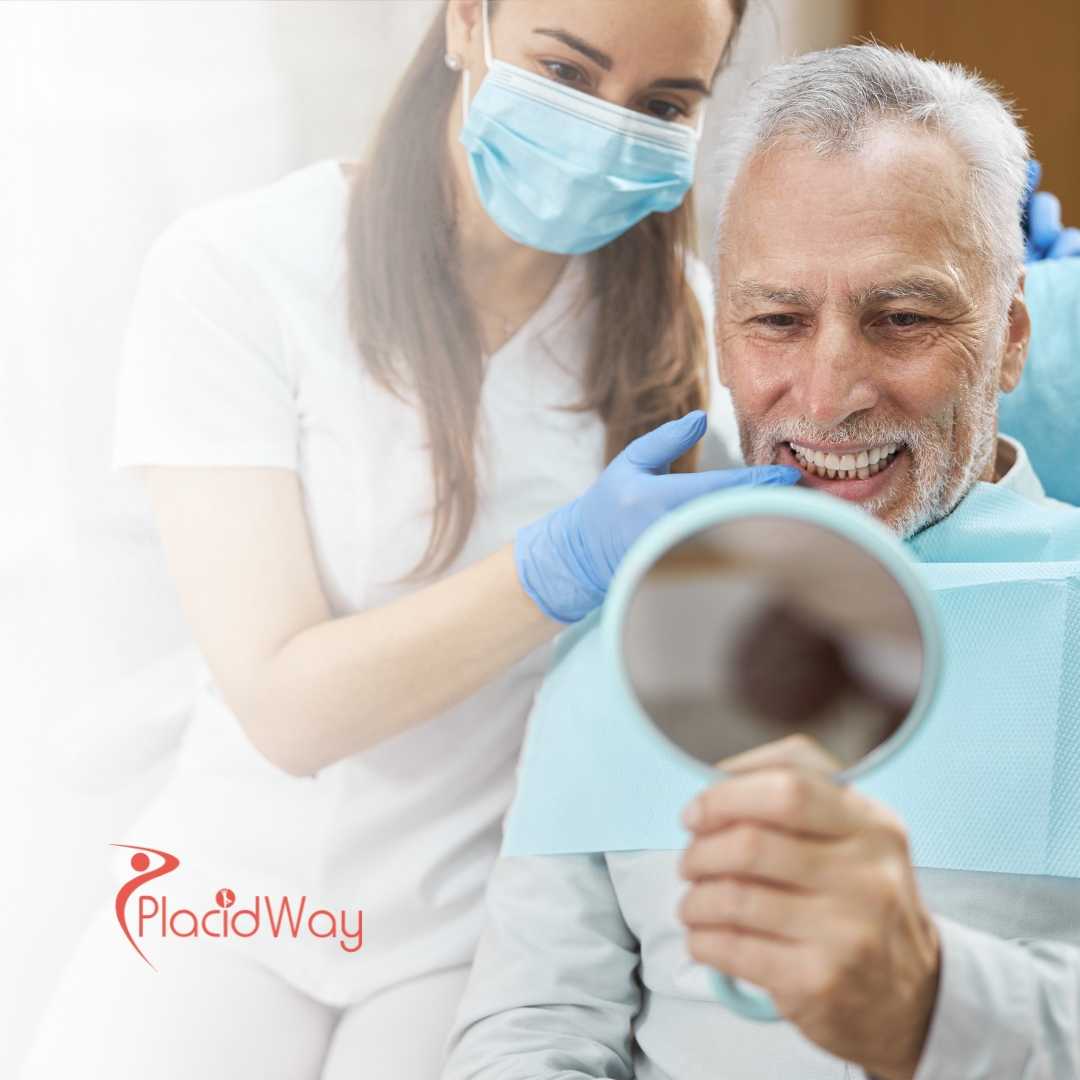
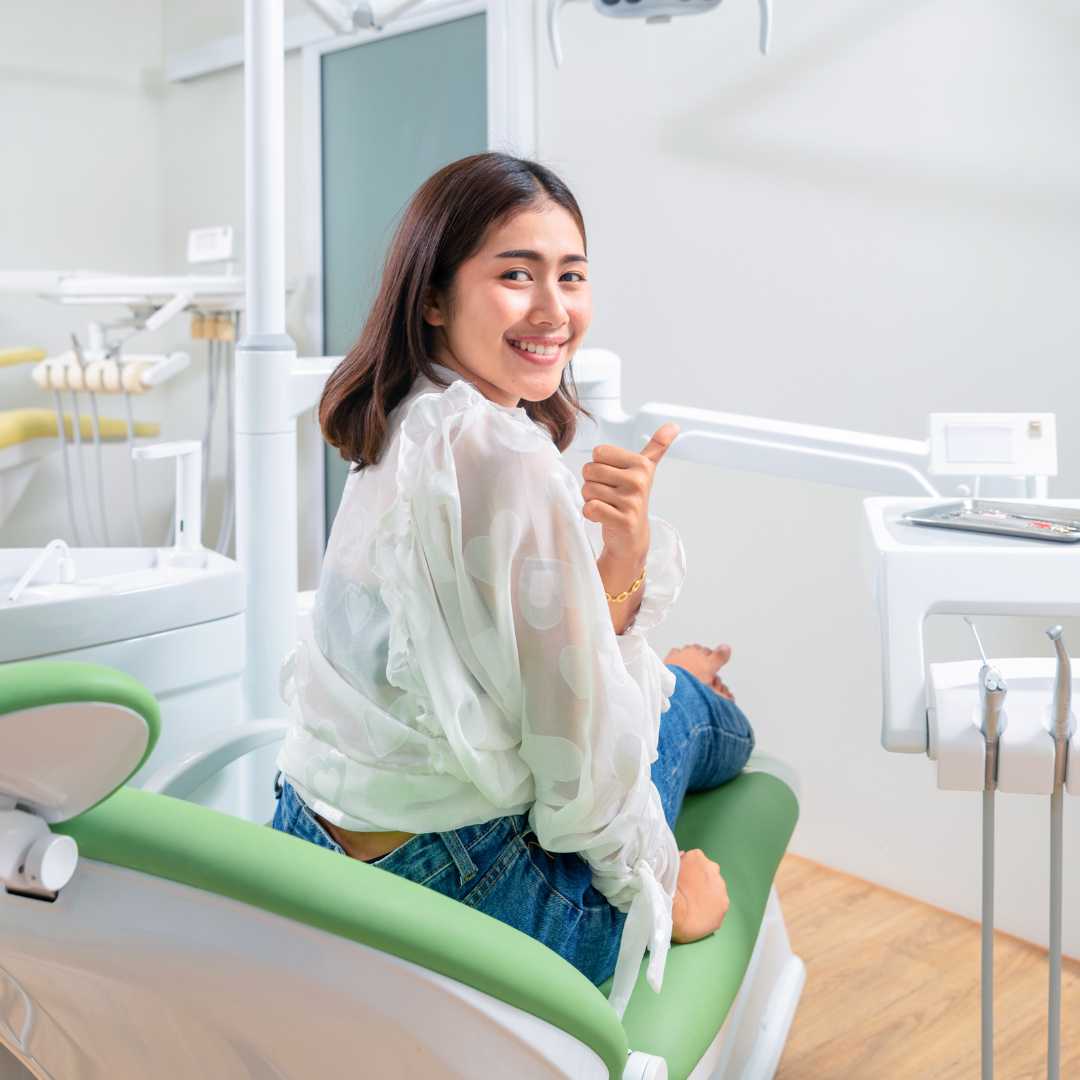



.png)
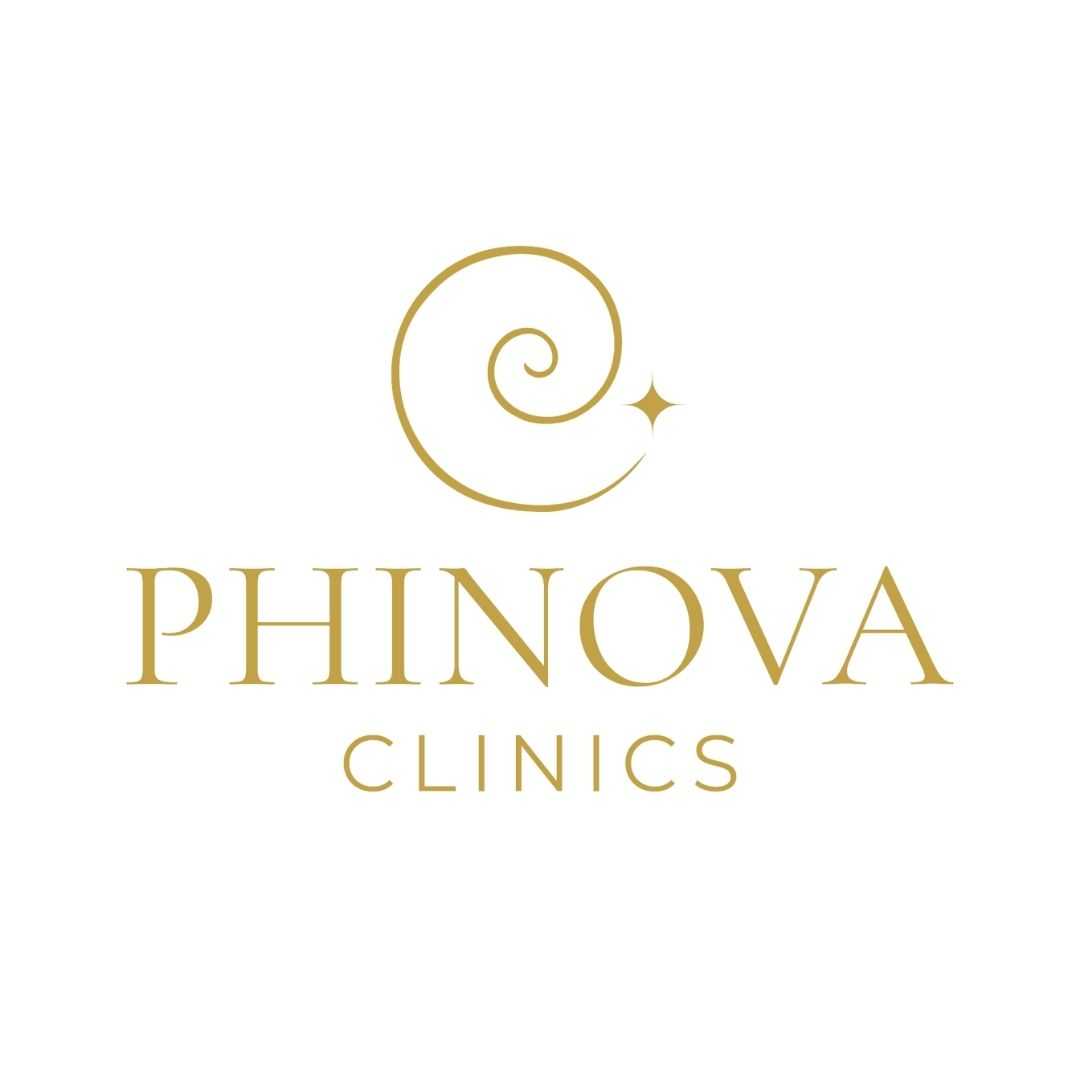

Share this listing